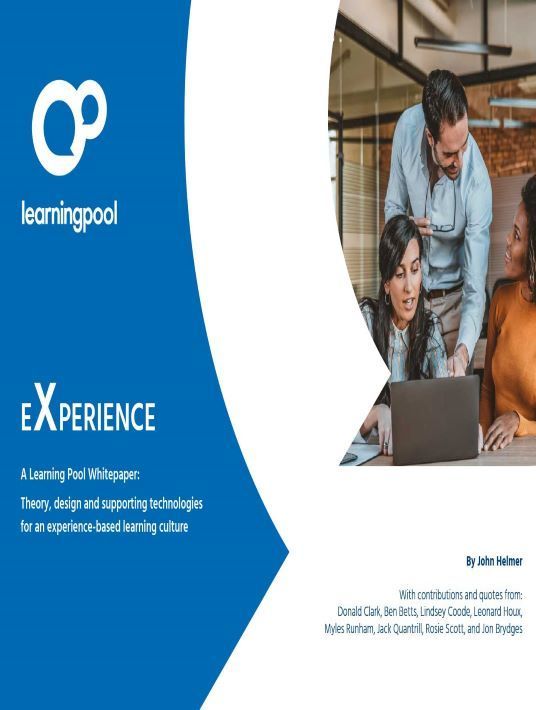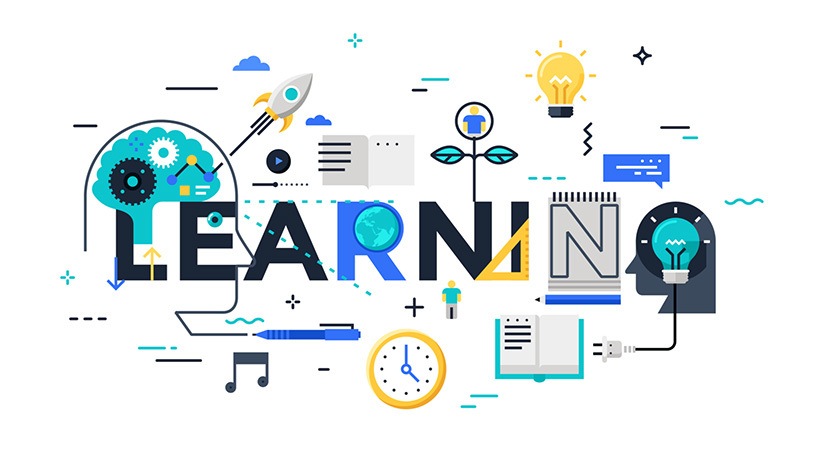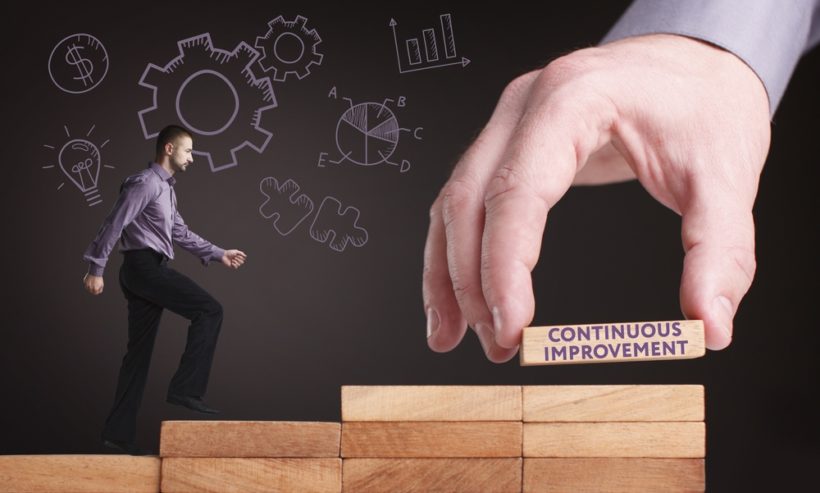The Challenge Of Defining A Learning Experience
This eBook from Learning Pool tries to define the learning experience as a term. Experience has always been an important part of learning. For example, there are literally thousands of books written about cooking. One can spend an entire lifetime reading them, even watching videos and listening to podcasts to figure out which is the best way to prepare a certain meal. None of these can substitute the experience of actually preparing the dish yourself. Experiences are, by far, one of the best and most efficient ways to teach something. An experience not only demonstrates as efficiently as possible your subject matter, but it also engages the learner in such a personal way that motivates them to find out the answers on their own.

And while the educational value of experiences is accepted by all, the term “learning experience” tends to be contested. There is a great amount of discussion on what exactly the terms “learning experience" and “learning experience designer” describe, and if there is any use for them or not. This whitepaper by Learning Pool tries to set the record straight by defining both of these terms, specifying the way to use them, and proposing and highlighting the differences between them and other similar terms.
About The eBook
The eBook is divided into 5 sections. Each section is one step further in Learning Pool's process of understanding and defining the framework that surrounds the term learning experience. One of the things I particularly enjoyed about this eBook is how it presents the subject matter from various angles, and then unifies it. You will also find plenty of examples and real-world references, which make the reading experience very enjoyable.
1. What Is A Learning Experience?
The first section of the eBook discusses the term learning experience and the ways it is used today. The opinions of various well-respected L&D professionals are discussed. The analysis ultimately ends up discussing the 3 ways someone might use this term: the event level, the program level, and the organizational level.
2. The Roots Of Learning Experience
The next chapter attempts to explore the roots of this term. This section explores the ties with various historical theories as well as the connection between a learning experience and a user experience. This is a very interesting thought since they both share their common origins in cognitive psychology. The chapter also discusses how designing for learners is significantly different from designing for users.
3. Designing Learning Experiences
The following section goes even deeper into Instructional Design. Although this is one of the shorter sections of the eBook, it is very impactful. Having outlined what a learning experience is, this chapter discusses what learning experience designers do, and offers useful tips and advice.
4. Using A Learning Experience Platform To Foster An Experience-Based Learning Culture Within Your Organization
This section of the eBook introduces the Learning Experience Platform and explains how it is relevant to everything that was discussed up to this point. The distinction of 3 levels of learning experience persists, and each of them is further analyzed in detail. Every level is also connected with the idea of the experience-based learning culture on an organizational level, and how your organization can benefit from it.
5. Conclusions
The final chapter of this eBook is a short recap of everything up to this point. The focus stays on the LXP, its features and architecture, its future, and how it fits in the modern L&D environment.
In Conclusion
I really enjoyed reading this whitepaper because Learning Pool did an excellent job researching their subject in-depth while trying to analyze every side of this matter. It is a very interesting and well-written eBook that can help you understand the entire framework around learning experiences.
Download eXperience: Theory, Design, And Supporting Technologies For An Experience-Based Learning Culture and discover Learning Pool’s journey to define the learning experience, how this connects to older theories, tips about designing learning experiences, and ways to use them in order to build a learning culture.







